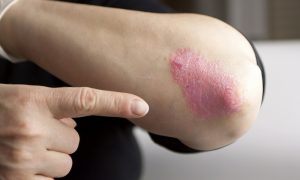Despite their popularity, omega-3 supplements do not benefit people with dry eye disease. However, the supplement does not cause any adverse effects.
The randomized clinical trial, published in JAMA Opthalmology, echoed findings from the DREAM study, another randomized, multicenter trial conducted in 2018.
What Is Dry Eye Disease?
Dry eyes are a condition that occurs when a person’s eyes can’t make enough tears to stay wet or when their tears don’t lubricate properly. Dry eyes can occur due to environmental factors, such as dry air or wind, sun, smoke, medications, or contact lenses. Chemical burns, hormonal changes, eye surgery, and autoimmune disorders that affect the glands responsible for producing tears can also cause dry eye disease.
The condition results in eye discomfort or, in some cases, vision problems. It can occur in otherwise healthy people and is more common in older people and women.
However, dry eye disease differs from occasional dry eyes caused by environmental factors. Sometimes, dry eye disease results from meibomian gland dysfunction or a condition called meibomianitis, which changes the normal tear film. The meibomian gland is the oil gland lining the eyelashes. According to the American Academy of Opthalmology (AAO), about 20 million people in the United States and 344 million globally suffer from dry eye disease.
Signs and symptoms of dry eye disease often include the feeling of a foreign body (like sand) in the eye, eye irritation, photophobia, blurry vision that may improve with blinking, mucus discharge, and excessive tearing.
The AAO reports that the condition currently lacks standardized medical care. This stems from signs and symptoms that don’t always line up, no standardized terminology, and a limited range of diagnostic tests available to ophthalmologists.
In addition, the U.S. Food and Drug Administration (FDA) has approved only a few treatment options for dry eye disease. Eye drops that help produce tears are the go-to therapy, though surgery is sometimes recommended in severe cases. However, over the years, more people have turned to omega-3 supplements like fish oil to help treat the condition. This is likely because omega-3s are known to be anti-inflammatory, and some prior research has shown that they can alleviate dry eye symptoms.
No ‘Potential Benefits’
In the new study, seven institutions in South Korea recruited participants with dry eye disease associated with meibomian gland dysfunction. The study involved 132 participants: 103 women and 29 men, with an average age of about 50.
During the study, participants were randomly assigned to receive either a fish-derived omega-3 or grapeseed oil supplement. Both supplements were taken daily for 12 weeks. Baseline measurements were taken at six and 12 weeks. These included outcomes pertaining to the meibomian gland and how well it functioned, as well as the lipid layer thickness of the gland. The researchers found that baselines didn’t change for either group.
“These findings support a relatively recent randomized clinical trial that also was not able to show that [omega-3] intake was effective for treating [dry eye disease],” the research team wrote.
The researchers admitted that the study’s sample size was relatively small (fewer than 60 people were evaluated in each group) and that follow-up studies were warranted, especially to see if more prolonged use of omega-3 supplements would offer more benefit to patients with dry eye disease.









